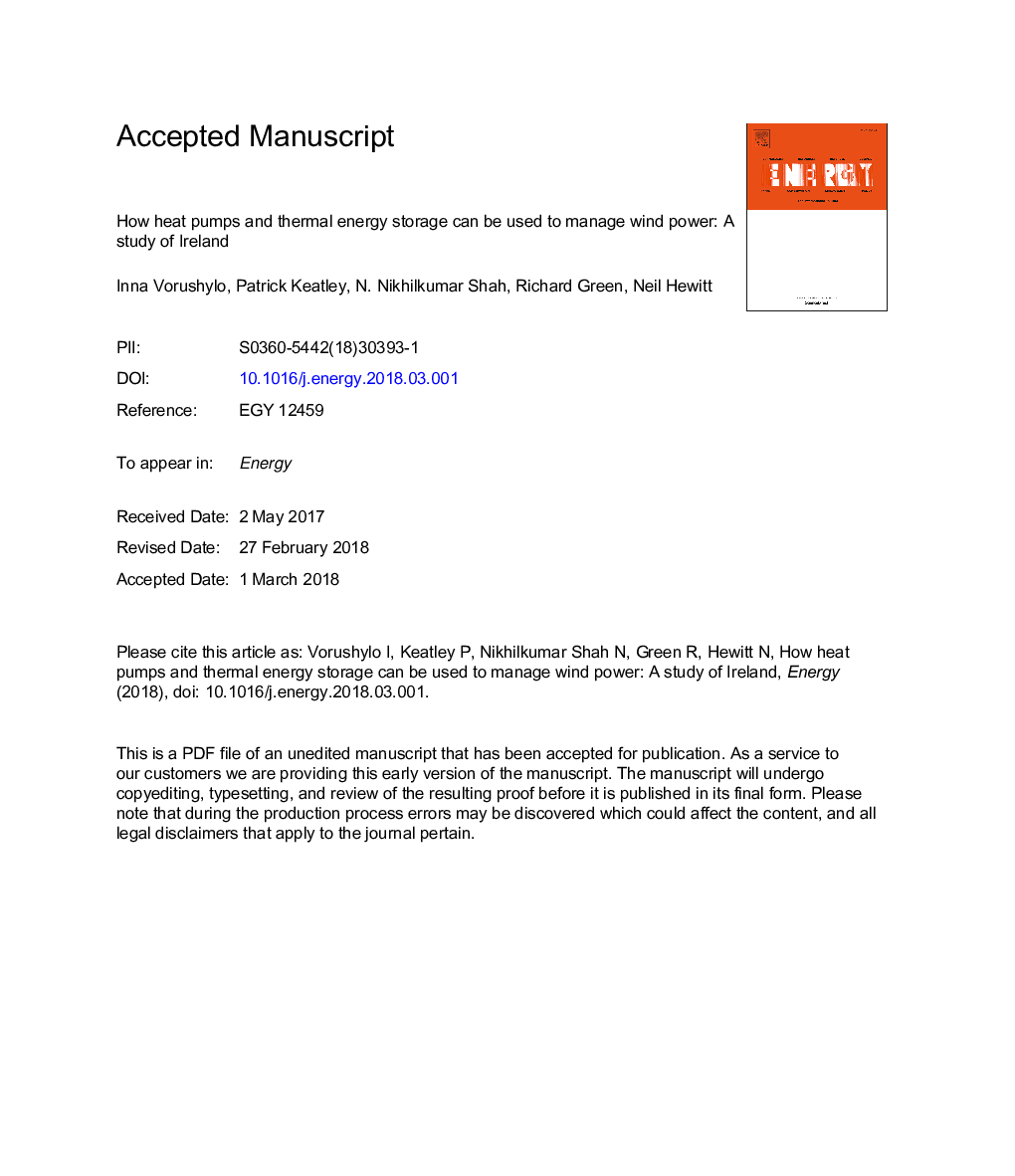| Article ID | Journal | Published Year | Pages | File Type |
|---|---|---|---|---|
| 8071260 | Energy | 2018 | 34 Pages |
Abstract
Although energy for heating and cooling represents the largest proportion of demand, little progress towards meeting environmental targets has been achieved in these sectors. The recent rapid progress in integrating renewable energy into the electricity sector however, can help in decarbonising heat by electrification. This paper investigates the impacts and benefits of heat electrification in a wind dominated market by considering two options; with heat pumps, and with direct electric heating, both operated with energy storage. The Irish all-island electricity market is used as a case study. Modelling results reveal the significant potential of heat pump electrification, delivering at least two and three times less carbon emissions respectively, when compared with conventional options such as gas or oil for 20% of domestic sector of the All Ireland market. Heat electrification using direct, resistive heating systems is found to be the most carbon intensive method. Energy storage systems combined with heat pumps could deliver potentially significant benefits in terms of emissions reductions, efficient market operation and mitigating the impacts of variable renewable energy on baseload generation. The main barrier to heat electrification in the all island market is the absence of appropriate policy measures to support relevant technologies.
Keywords
Related Topics
Physical Sciences and Engineering
Energy
Energy (General)
Authors
Inna Vorushylo, Patrick Keatley, Nikhilkumar Shah, Richard Green, Neil Hewitt,
